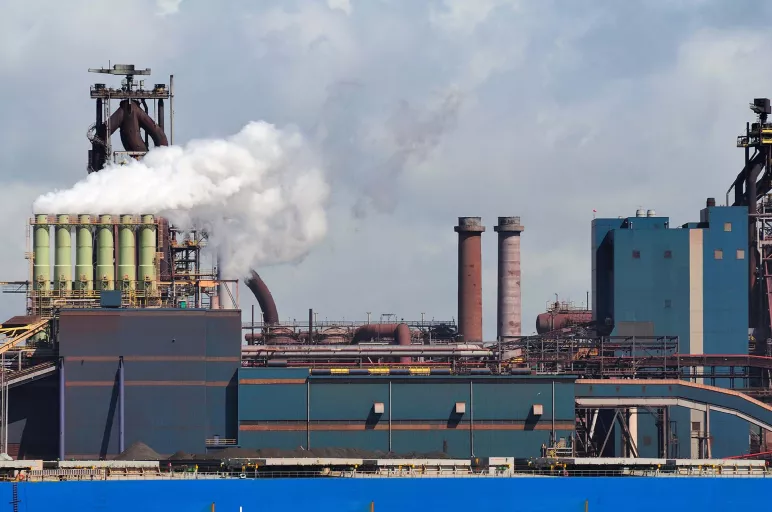
Why Enterprises Must Adopt Emission Reduction Strategies
April 15, 2024 | Supply Chain Strategy
The global climate crisis continues to intensify. Consequences of unchecked emissions — such as rising temperatures, rising sea levels and ecological degradation — pose severe risks to ecosystems and economies. And with that, reducing greenhouse gas (GHG) emissions has become imperative for businesses globally.

How Procurement Leaders Can Promote Responsible Sourcing
April 03, 2024 | Procurement Strategy
Explore the transformative power of responsible sourcing in shaping a sustainable future. Discover how ethical labor practices, environmental sustainability, and community engagement drive positive social and environmental impacts. Learn more in this GEP blog.

Your Guide to Supply Chain Decarbonization
April 02, 2024 | Supply Chain Strategy
In today's climate-conscious world, businesses are coming under increasing scrutiny, from government regulators, investors and consumers, for their environmental impact.
This scrutiny extends beyond a company's own operations to encompass its entire supply chain as stakeholders begin to weigh the impact of climate-related risks from a company’s entire value chain on its business. With the increased attention on supply chain emissions, the goal of supply chain decarbonization is coming to the forefront.

5 Ways New US EPA Rules Will Impact Automotive Procurement
April 01, 2024 | Risk Management
By Vengat Narayanasamy
The United States Environmental Protection Agency (EPA) has brought in shift in rules that aim to alter the trajectory of electric vehicle (EV) adoption in the country.
Initially, the EPA had wanted two-thirds of all vehicles sold to be electric by the end of the decade.

How to Develop an Effective ESG Strategy
March 28, 2024 | Risk Management
The landscape of procurement and supply chains is undergoing a significant shift. Environmental, social, and governance (ESG) factors are no longer just a box to tick – they're essential for building a resilient and future-proof business model.
For procurement and supply chain professionals, integrating ESG best practices offers a strategic advantage, leading to improved profitability, cost control, and, ultimately higher returns on investment.

Mitigating ESG Risks in Supply Chains: Why Supplier Visibility & Collaboration Hold the Key
March 28, 2024 | Supply Chain Strategy
If you are a business leader, you must be aware of your business’ environmental and social responsibilities. You may also have in place a structured ESG program with some pre-defined targets.
But can you say the same thing about your suppliers?
Do you monitor the ESG performance of your suppliers? How do you evaluate this aspect of supplier operations? Do your suppliers (and suppliers’ suppliers) share data related to emissions and other key parameters? If they do share this data, how can you determine it is accurate?

SEC Climate Risk Disclosure: What Your Company Should Do Next
March 27, 2024 | Risk Management
It’s official. Publicly traded companies in the United States will now have to disclose key climate-related risks in their filings at the Securities and Exchange Commission (SEC).
The new rules come two years after the regulatory body proposed the changes and considered more than 24,000 comment letters.
These rules will give investors consistent, comparable, and decision-useful information, and issuers with clear reporting requirements, according to SEC Chair Gary Gensler.

Green Packaging: Three Alternatives Redefining Industrial Drums
March 26, 2024 | Packaging
By Virat Venkataraman
With investors and consumers showing a growing affinity toward environmentally responsible organizations, sustainability has become a critical focus area across the packaging value chain.
In fact, many organizations have made clear sustainable packaging commitments for the near, medium and long terms.
Amidst this shift, the significance of industrial packaging, particularly in safeguarding and secondary packaging and handling hazardous content, is often overlooked.

5 Essential Environmental Sustainability Metrics Enterprises Should Track
March 22, 2024 | Risk Management
In today's world, consumers and businesses alike are increasingly focused on environmental responsibility. Procurement and supply chain play a critical role in ensuring a company's operations are sustainable and minimize environmental impact.
But how do you measure progress and identify areas for improvement? Here's a comprehensive guide to essential environmental sustainability metrics that procurement and supply chain professionals should monitor and track.

How Enterprises Can Fast-Track Scope 3 Reporting Capabilities
February 28, 2024 | Supply Chain Strategy
The impending wave of mandatory Scope 3 reporting presents a significant challenge for businesses across industries. Navigating the complexities of supply chain emissions can feel daunting, especially for companies at the lower end of the maturity curve.
However, by embracing and leveraging procurement technology, they can drive progress on Scope 3 reporting initiatives, no matter what stage of the sustainability journey they’re at.


